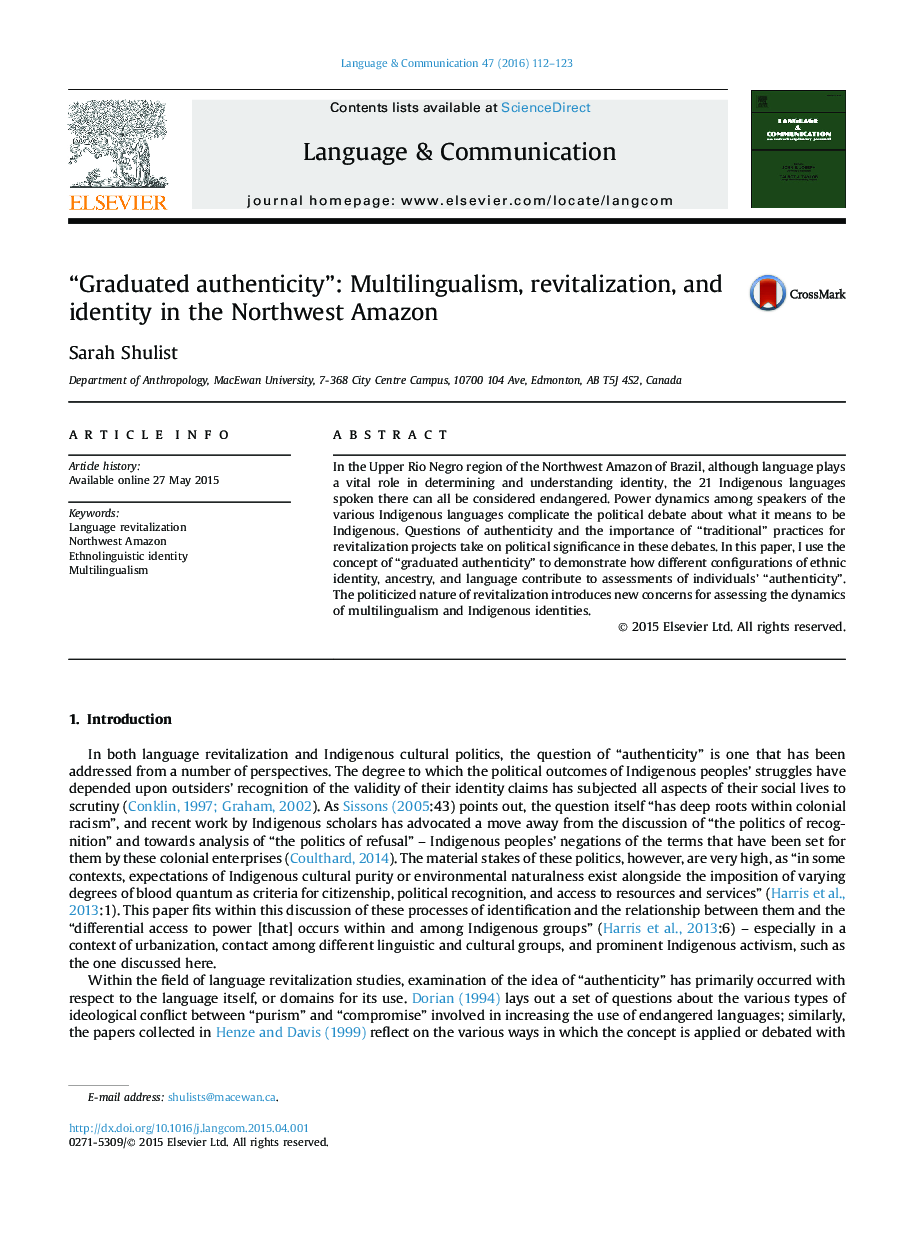| Article ID | Journal | Published Year | Pages | File Type |
|---|---|---|---|---|
| 935157 | Language & Communication | 2016 | 12 Pages |
•The impact of revitalization on identity differs in multilingual settings.•Northwest Amazonian ideologies about identity/multilingualism are shifting.•Participation in Indigenous politics is mediated by assessments of “authenticity”.•Consistent patterns of assessment are based on language/identity matches.
In the Upper Rio Negro region of the Northwest Amazon of Brazil, although language plays a vital role in determining and understanding identity, the 21 Indigenous languages spoken there can all be considered endangered. Power dynamics among speakers of the various Indigenous languages complicate the political debate about what it means to be Indigenous. Questions of authenticity and the importance of “traditional” practices for revitalization projects take on political significance in these debates. In this paper, I use the concept of “graduated authenticity” to demonstrate how different configurations of ethnic identity, ancestry, and language contribute to assessments of individuals' “authenticity”. The politicized nature of revitalization introduces new concerns for assessing the dynamics of multilingualism and Indigenous identities.
